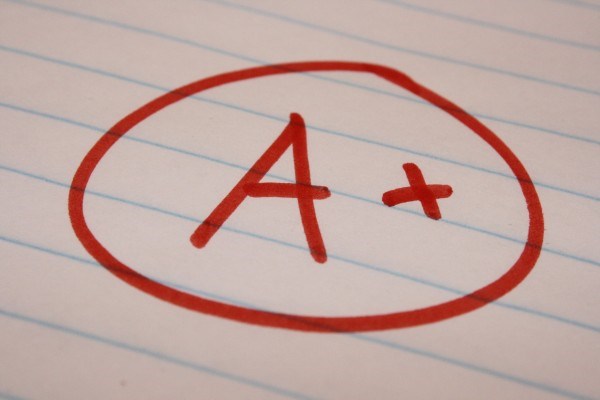A common frustration for teachers at those “parents meet the teachers” events is the parent who does not want to know anything about the complexity of a child’s learning progress except the letter grade. “Let’s get to the bottom line,” they say. “Just give me the real story — A, B, C or whatever.”
The B.C. provincial Letter Grades Order (School Act 79/3) doesn’t help much: An “A” means: “The student demonstrates excellent or outstanding performance in relation to expected learning outcomes for the course or subject and grade,” and a “B” means: “The student demonstrates very good performance in relation to expected learning outcomes for the course or subject and grade” — and so on.
Whatever.
Even less helpful is a letter grade derived mathematically from averaging the accumulation of all student marks from Day 1 (when presumably any substantial learning has yet to occur) to the end of term (during which time learning of a kind, at least in terms of memorizing what tests measure, has occurred incrementally).
Letter grades, absent any other information, make about as much sense as, when contemplating a vacation in Mexico, asking a friend who has just returned from two weeks in Los Cabos: “How was it?” “Maybe a ‘B,’ ” he replies.
That answer has to be followed with a lot more information, at least a lot more before I decide to go there or not.
But no, a letter grade is the beginning and end of what some parents want to know, and that’s what makes the results of a widely reported study by University of Florida researcher Melissa A. Bright so troubling.
The idea for the study, said Bright, arose from the personal accounts of pediatricians and teachers who saw evidence of a definite pattern of abuse in 1,943 cases shortly after report cards were released, especially on Friday.
Here in B.C., when the school district in Maple Ridge asked for volunteers to pilot a new report-card system that abandons traditional letter grades, officials expected a few schools to sign up. Instead, 17 of the district’s 21 schools stepped forward.
The pilot, launched in 2013, was largely driven by teacher concerns that letter grades weren’t effective.
Students in Grades 4 through 7 could choose to switch to a system that focuses on detailed feedback throughout the year, rather than simply whether a student earned an A, B or C.
Since the program’s launch, the number of families who still ask for letter grades has fallen from almost half to just 14.
Other districts followed suit, with the common thread being a shift away from traditional letter-grade assessments in favour of more detailed evaluation and parent-teacher engagement throughout the year.
Some districts would like to see a letter-grade-free reporting system from kindergarten to Grade 12, but those efforts are frustrated by the need to ensure students have standardized marks required for post-secondary applications and scholarship proposals.
Now comes a piece in the New York Times entitled What Straight A Students Get Wrong by Adam Grant, professor of management and psychology at the Wharton School at the University of Pennsylvania, in which he proposes that academic success (as measured by letter grades) is not always an indicator of future success.
Even for students at post-secondary institutions, “the correlation between grades and job performance is modest in the first year after college and trivial within a handful of years.”
Grant makes the case that academic grades rarely assess qualities such as creativity, leadership and teamwork skills, or social, emotional and political intelligence.
As prolific author and critic of letter-grade reports Alfie Kohn wrote: “What grades offer is spurious precision — a subjective rating masquerading as an objective evaluation.”
In speaking to trustees, I have often told the story of my cousin Graham, for whom letter grades were so discouraging that he left school before completing Grade 10 to drive a tow truck.
The last time my wife and I were in Australia, we spent time with Graham and his family at their palatial harbourside home. Graham took us on an unforgettable tour of Sydney, the harbour and the northern beaches in his personal helicopter.
It turns out Graham had an undiscovered (at least by his letter-grade report cards) genius for business.
As our understanding of teaching and learning evolves, it might be getting closer to a time when we accept that measuring learning with numbers, percentages and letters is not only impractical, it is potentially harmful to learners.
Geoff Johnson is a former superintendent of schools.



